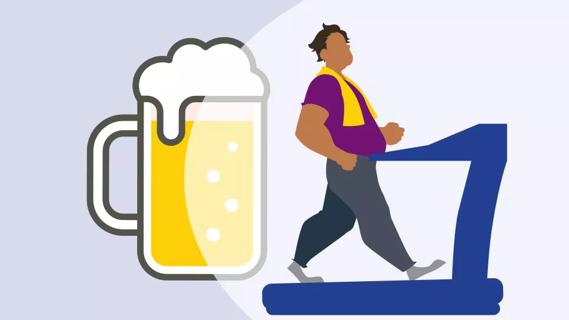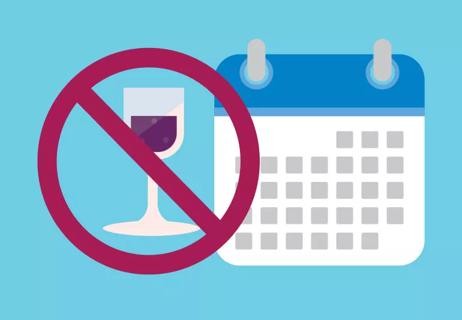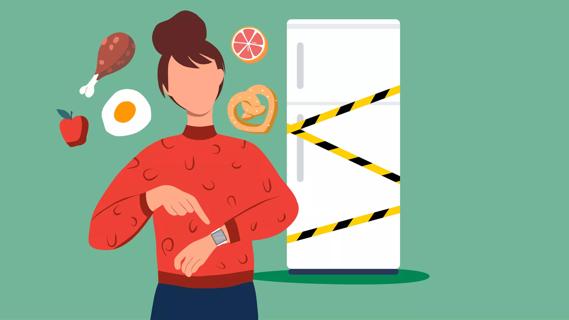Often labeled as ‘diabetes-friendly’ or ‘calorie-free,’ this sugar substitute warrants caution

If you’re health-conscious (especially if you have diabetes), you’re likely a pro at reading food labels. But how much do you know about products that use sugar alcohols as a sweetener?
Advertisement
Cleveland Clinic is a non-profit academic medical center. Advertising on our site helps support our mission. We do not endorse non-Cleveland Clinic products or services. Policy
“Sugar alcohols may have a slight influence on your blood sugars, but overall, they’ve long been thought to be safe to include as part of a balanced diet,” says registered dietitian Tegan Bissell, RD, LD. “New research shows that that might not be as true as we once thought, though.”
Bissell explains what you need to know to reap the benefits and avoid the drawbacks.
The term itself is actually misleading: There is no alcohol in sugar alcohols, and there’s no sugar, either. “Sugar alcohols are a type of carbohydrate and have a chemical structure that’s similar to sugar,” Bissell says.
Though they occur naturally in some foods, most sugar alcohols found in packaged foods are manmade and manufactured. Food manufacturers use these sugar alcohols to sweeten their products while reducing calories.
“Sugar alcohols stimulate the tongue’s sweet taste buds, which adds flavor without extra sugar or calories,” explains Bissell. “Food companies use them so that they can market their foods as low-carb, sugar-free or diabetes-friendly without sacrificing taste.”
Because of this, they’re often found in products that are labeled “diabetes-friendly” or “keto-friendly.” Common sugar alcohols include:
Advertisement
More information on those individual ingredients in a moment. But for now, let’s delve a little deeper into what sugar alcohols do, on the whole — both good and bad.
Sugar alcohols are sometimes referred to as artificial sweeteners, a category that includes aspartame and saccharin, but they’re actually not the same thing. Though they’re both manufactured, they differ in a couple of key ways.
“Sugar alcohols have very few calories, and they’re not as sweet as sugar,” Bissell notes. “Artificial sweeteners, on the other hand, are chemicals that provide an intense level of sweetness and no calories.”
You can also buy artificial sweeteners as a sugar substitute for baking and cooking.
Sugar is 100% natural, exclusively coming from fruits, plants, vegetables and milk. Though some sugar alcohols come from fruits and vegetables, most are artificial.
Sugar alcohols have some benefits over regular sugar, including:
Sounds great, right? Not so fast. There’s another key difference between sugar and sugar alcohols.
“Your body can easily digest sugar and use it for energy,” Bissell says. “But it can’t absorb or fully digest sugar alcohols.” As it turns out, that can cause some problems.
Sugar alcohols have long been considered a safe addition to your diet — in moderation. Studies have shown 10 to 15 grams a day of sugar alcohols are safe.
But a recent study shows that one sugar alcohol, erythritol, may be much worse for your health than anyone realized. It found that erythritol is closely associated with an increased risk for “major adverse cardiovascular events,” including heart attack and stroke.
“In light of this new information, it’s hard to say whether other sugar alcohols are still considered safe,” Bissell states. “We really need further studies and, especially, more long-term studies on these kinds of compounds before anyone can say for sure.”
Though the overall safety of sugar alcohols is up in the air, there are some proven side effects. Too much sugar alcohol in your diet can have unpleasant results, including these three big ones:
Your body can’t fully digest sugar alcohols, which can lead to some unpleasant GI symptoms — and they usually happen pretty soon after you eat them.
Advertisement
In a 2006 British study, researchers gave participants doses of sugar or one of two types of sugar alcohols (xylitol and erythritol). Those who took xylitol reported bloating, gas, upset stomach and diarrhea. Erythritol appeared to have milder effects on the stomach, only increasing nausea and gas when consumed in large doses.
“If you eat foods with sugar alcohols several times a day, you could wind up with some tummy troubles,” warns Bissell. “If you notice this happening, use caution or find another sweetener option.”
In everyday terms, this means that sugar alcohols may make you poop. Again, this is because your stomach can’t absorb sugar alcohols, which can cause them to linger in your intestines and ferment.
This effect is most common in children and in adults who:
Sugar alcohols are low in calories and carbs, but not free of them. So, it’s still possible to gain weight when you’re eating foods that contain sugar alcohols, especially if you eat them in excess.
A study of college students found that high levels of erythritol were associated with weight gain — specifically, increased belly fat — throughout their freshman year.
Advertisement
“Just as sugar lurks behind different terms on food labels, sugar alcohols also have many names,” Bissell explains. When you see one of these products on a label, here’s what you’re getting:
But frustratingly, you could be eating foods made with sugar alcohols without even knowing it — even if you’re reading those labels closely. The U.S. Food and Drug Administration (FDA) doesn’t require food companies to list erythritol on their nutrition labels.
Advertisement
Aside from reading the ingredients on food labels, Bissell says you can identify products that may contain sugar alcohols by looking for processed foods that say they’re:
Another dead giveaway that a product includes sugar alcohols is a label that says, “Excessive consumption can cause a laxative effect.” The FDA requires this language on any product that contains added sorbitol or mannitol.
The bottom line: Sugar alcohols can help reduce your carbohydrate intake, but researchers don’t yet know their full impact on your health. As with most foods, it’s best to consume products with sugar alcohols only in moderation and to focus on whole foods instead.
Learn more about our editorial process.
Advertisement

Misleading claims, lack of scientific evidence and the risk of over-doing it are all concerns

Getting rid of excess abdominal fat will take more than just cutting back on cold ones

Studies point to potential benefits, but don’t open a bottle just to improve your health

Your liver, heart and skin will all thank you for the break from alcohol

Alcohol use may cause an irregular heartbeat, raised blood pressure and more

Drinking can make you anxious or jittery

Be honest, be safe and don’t blame yourself

Plan ahead by hydrating, cutting back on sugar and managing medications

Type 2 diabetes isn’t inevitable with these dietary changes

Applying a hot or cold compress can help with pain